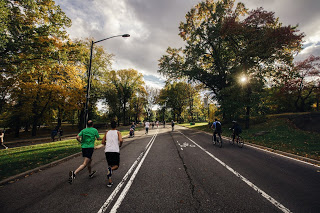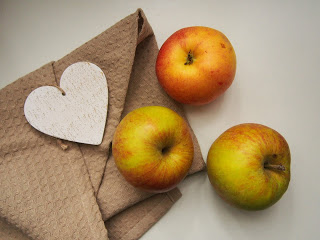There’s something about setting your sights on 13.1 miles that is exhilarating, nerve racking, yet attainable all at the same time. At least, these were some of my emotions when training for my first half marathon. Choosing a training program was pretty easy with a little bit of research. However, figuring out what, when, and how to incorporate meals and snacks around training was a bit trickier, but nonetheless possible. Whether you’re running to finish or running for your personal best, maintaining proper nutrition can help you accomplish any goal.
While proper nutrition should be a part of your every day  lifestyle, during your 10-15 weeks of training, using proper nutrition guidelines can help you excel. Optimal nutrition both before and after a run will help increase nutrient stores allowing your muscles to repair, become stronger, and increase/sustain energy production.
lifestyle, during your 10-15 weeks of training, using proper nutrition guidelines can help you excel. Optimal nutrition both before and after a run will help increase nutrient stores allowing your muscles to repair, become stronger, and increase/sustain energy production.
FYI: training for a half marathon is not the time to cut calories to lose weight because getting enough calories for your body is important during training. It’s essential to eat enough during the day to avoid fatigue during your workouts. In addition to daily balanced meals, have a carbohydrate based snack before your run to maintain a source of energy. Here are some ideas of the type of foods you should be eating as well as the time you should consume them.
Pre-run foods
10-15 minutes before a run
o Whole piece of fruit – orange, apple, grapes, etc
o Applesauce
o Pudding
30-60 minutes before a run
o Cereal – try varieties with quickly absorbed carbs to avoid cramping and bloating
o Dried dates
o Greek yogurt with fresh berries
60-90 minutes before a run
o Hummus and carrots or whole wheat crackers
o Instant oatmeal – plain is best, sweeten with cinnamon and berries
o Sweet potatoes
30-60 minute run aim to consume 150 calories
60-90 minute run aim to consume 200-250 calories
90 minute-120 minute run aim to consume 250-300 calories
I do understand that not everyone can handle solid food before a run, so if you are one of those individuals, have a sports drink.
Post run foods
Fueling up after a run is just as important as adequate intake during the day. Consuming a snack, ideally within 30 minutes of our run, helps your body replenish glucose stores. Your post run snack should consist of a 4:1 carbohydrate to protein ratio. Chose a snack similar to your pre run snack – whole grains, fruits, etc.
Approaching race day
Two weeks
As race day gets closer, about 2 weeks out, adding more complex carbs to your daily diet helps to build up glycogen stores in your muscles. Whole grain bread, whole wheat pasta, brown rice, and vegetables are a good source of complex carbs. Throughout all of your training (and when you’re not training) drinking lots of water is necessary. During long runs, drink water every 20-30 minutes, or as often as needed; especially in the Louisiana heat.
Three days
Three days before the race, your diet should be around 70% carbs. Stick with foods you are familiar with and how your body digests them. These complex carbs will provide your muscles and brain with the fuel needed to get through the race.
Night before
The night before the big day, eat a nutritious meal, continue drinking water, and don’t experiment with anything new. Dinner should consist of whole grains, veggies, and lean protein. If you found complex carbs did not sit well with you during training, having white pasta, rice, etc is okay.
Morning of race day
The morning of race day, eat a healthy breakfast consisting of 400-600 calories of something familiar. Drink water and have a cup of coffee if that’s something you’re use to – the caffeine can help.
Happy training everyone!




